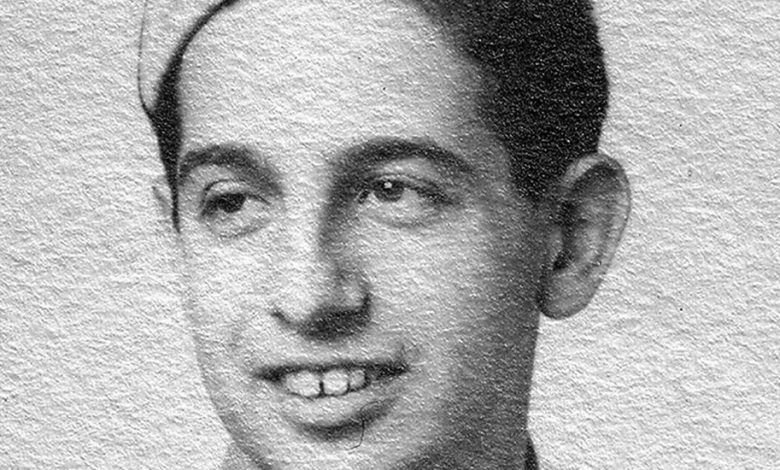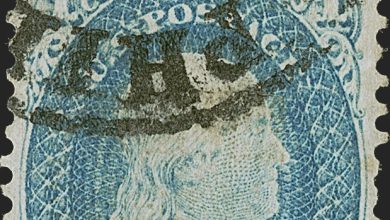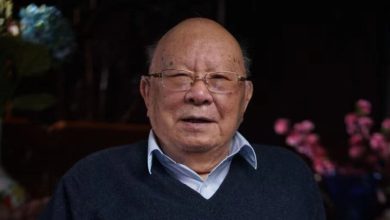Guy Stern, Who Fled Germany and Then Interrogated Nazis, Dies at 101

Guy Stern, who fled rising antisemitism in Nazi Germany at 15 for a new life in the United States but returned to Europe during World War II as a member of a military intelligence program that trained him to interrogate prisoners of war, died on Dec. 7 in West Bloomfield, Mich. He was 101.
His death, at a hospital, was confirmed by his wife, Susanna Piontek, a German writer.
Mr. Stern was one of the so-called Ritchie Boys, a group named for a secret Army camp in Maryland that served as a training center where an estimated 11,000 soldiers — 2,000 to 3,000 of them European Jews, mostly from Germany — completed a full course of instruction.
They learned, among other things, how to interrogate, interpret and translate for foreign officials; recognize the details of imprisoned German and Italian prisoners’ uniforms; and extract vital information from documents drafted in bureaucratic German.
“We were fighting an American war, and we were also fighting an intensely personal war,” Mr. Stern told The Washington Post in 2005. “We were in that war with every inch of our being.”
He was speaking at the premiere of a documentary, “The Ritchie Boys,” directed by Christian Bauer, held at the shuttered camp in the mountains of Maryland.
Mr. Stern landed in Normandy in June 1944, three days after the D-Day invasion, served in Germany, Belgium and France and interrogated prisoners until the end of the war and for a while after.
At least 60 percent of the actionable intelligence in the European theater was amassed by the Ritchie Boys, according to David Frey, director of the Center for Holocaust Studies and Genocide at the United States Military Academy at West Point. Dr. Frey said that there are probably no more than 25 or 30 Ritchie boys still alive.
One of Mr. Stern’s strategies for forcing recalcitrant prisoners to cooperate was to pretend to be a fierce but erratic Soviet commissar named Krukow. He dressed in the appropriate regalia; spoke in a Russian accent (based on the voice of the Mad Russian, a character on the comedian Eddie Cantor’s radio show); kept a photograph of Stalin supposedly signed to Krukow nearby; and threatened to send the imprisoned Germans to Siberia.
“We didn’t break everyone,” Mr. Stern wrote in “Invisible Ink: A Memoir” (2020). “Some of our captives may have reflected on the impossibility of transporting prisoners across half a continent to face the feared Russians. But mostly the stratagem worked.”
Günther Stern was born on Jan. 14, 1922, in Hildesheim, Germany. His father, Julius, sold textiles. His mother, Hedwig (Silberberg) Stern, was a homemaker who helped her husband in his work.
Günther was 11 when Hitler took power in 1933, Within four years, the Nazis’ terror campaign against Jews had made the family’s life intolerable.
Günther recalled being ostracized at his all-male school.
“I went to my father one day and I said, ‘Classes are becoming a torture chamber,’” he said in an interview with the CBS News show “60 Minutes” for a segment on the Ritchie Boys in 2021.
In 1937, his parents decided to send Günther, their oldest child, to live with his Uncle Benno and Aunt Ethel in St. Louis. But after he arrived, he could not find a sponsor to bring the rest of his family — his parents; his sister, Eleonore; and his brother, Werner — to the United States. All four were killed by the Nazis, but Mr. Stern was never certain if their deaths occurred in the Warsaw Ghetto, where they spent time, or in a death camp.
Günther finished high school in St. Louis — where he adopted a girlfriend’s suggestion that he change his name to Guy — and worked as a busboy in a hotel while attending Saint Louis University. He tried to enlist in the Navy after the Japanese attack on Pearl Harbor; he was rejected because he hadn’t been born in the United States, but he was then drafted by the Army and sent for basic training at Camp Barkley, Texas, where he became a naturalized citizen in 1943. He was ultimately transferred to Camp Ritchie.
While in Germany, he used a method of mass interrogation that helped him earn a Bronze Star.His other honors include knight of the Legion of Honor, which he received from France on International Holocaust Remembrance Day in 2017.
After his discharge, he completed his education, financed by the G.I. Bill of Rights. He graduated from Hofstra College (now University) in 1948 with a bachelor’s degree in romance languages, then earned a master’s degree in German in 1950 and a Ph.D. in 1954 from the Columbia University Graduate School of Arts and Sciences.
For the next half-century, he taught German at Denison University, in Granville, Ohio, and was chairman of the German department and dean of graduate education and research at the University of Cincinnati; chairman of the department of German and Slavic languages and literatures at the University of Maryland; and vice president and provost for academic affairs and, later, distinguished professor of German literature and cultural history at Wayne State University in Detroit.
At his death, Mr. Stern was director of the International Institute of the Righteous at the Zekelman Holocaust Center in Farmington Hills, Mich. The institute explores and researches ethical behavior during the Holocaust; Mr. Stern was especially interested in altruism, in particular in how Jews helped Jews.
Ms. Piontek is his only immediate survivor. His son, Mark, died in 2006. His marriage to Margith Langweiler ended in divorce. His second marriage, to Judith Edelstein Owens, ended with her death in 2003.
Mr. Stern translated Ms. Piontek’s story collection “Have We Possibly Met Before? And Other Stories” (2011) into English and wrote the preface. She, in turn, translated Mr. Stern’s memoir into German.
Mr. Stern was 98 when he was interviewed for “The U.S. and the Holocaust” (2022), a three-part PBS documentary directed by Ken Burns, Lynn Novick and Sarah Botstein, and 99 when he talked to Jon Wertheim of “60 Minutes.” In both interviews, he wore a salmon-colored blazer and was an engaging presence as he eloquently recalled his past.
“He had a twinkle in his eye and a lightness in his step,” Ms. Novick said in a phone interview.
In the documentary, Mr. Stern recalled entering the Buchenwald concentration camp after its liberation in April 1945 and seeing the skeletal but still living inmates.
“I was a hardened soldier by then, but I couldn’t help myself,” he said. “So I was crying. I looked around and Sergeant Hadley, from a Protestant family in Ohio, he was bawling like a kid, as I was. You couldn’t take it. But they could — the perpetrators who could do such a thing, and the victims who had to endure it.”
Ms. Novick said that Mr. Stern was a critical voice in the documentary.
“He checked so many boxes for us,” she said, “as someone who grew up in Germany, who managed to get to the United States, who lost family members, went back to fight the Germans, and then became a scholar.”





